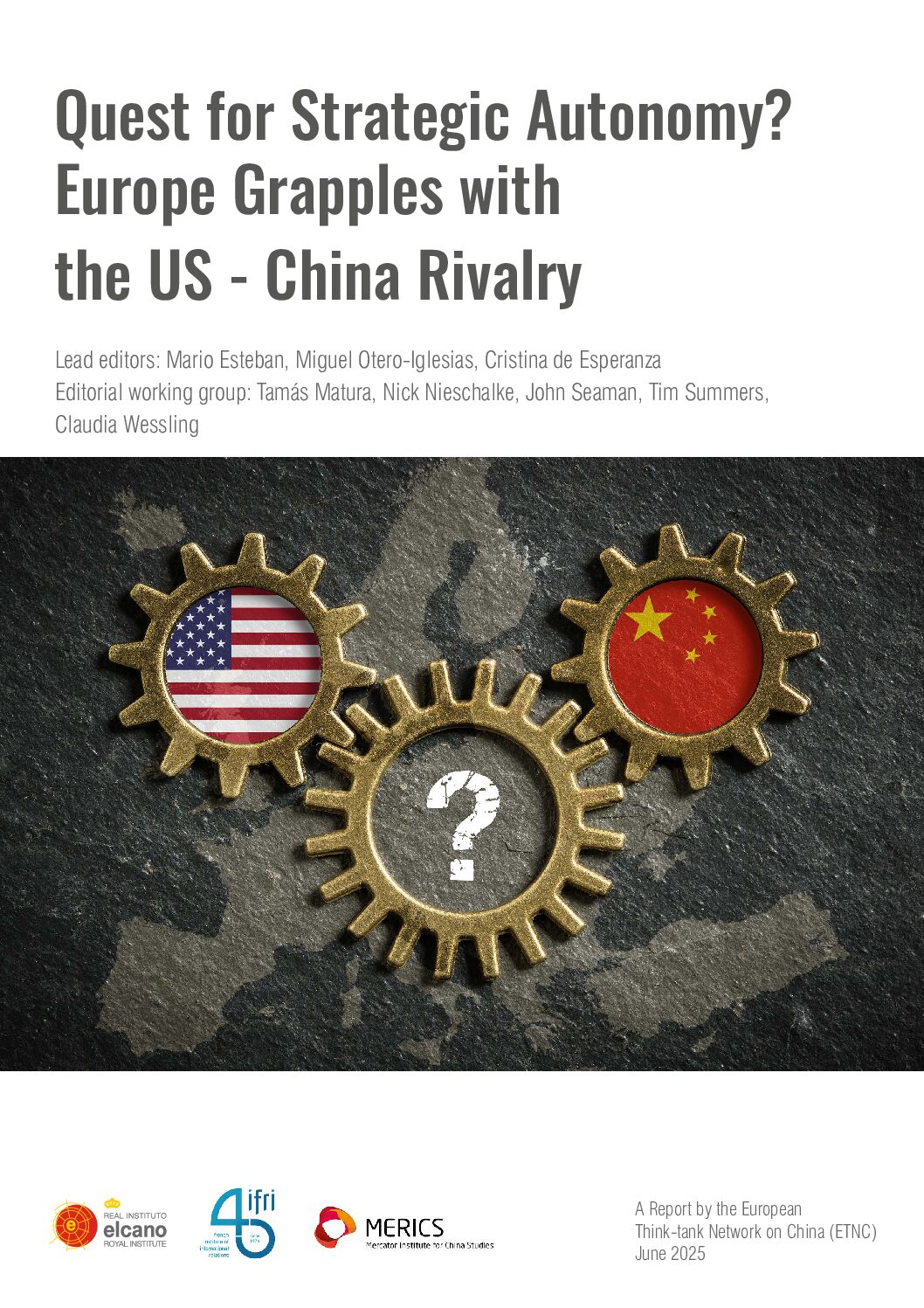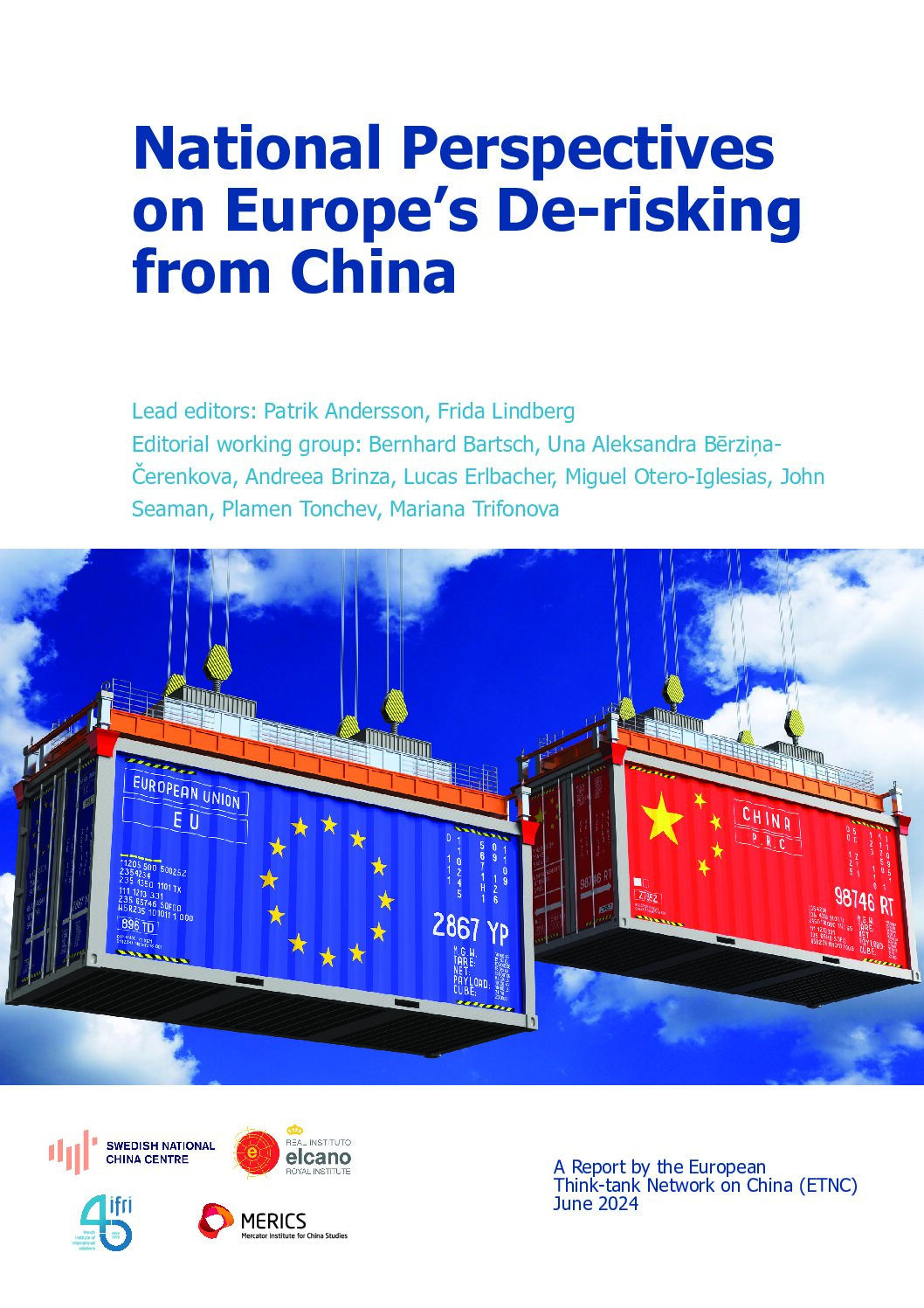European Think-tank Network on China (ETNC)
ETNC är ett nätverk av Kinaexperter från europeiska tankesmedjor och forskningsinstitut som fokuserar på Kinas utrikespolitik och relationerna mellan EU och Kina.
Nätverket har som syfte att främja regelbundna utbyten mellan forskare för att fördjupa förståelsen av Europas relation till Kina och hur utvecklingen i Kina kan påverka Europas framtid.
ETNC publicerar årligen en rapport som granskar Europa–Kina-relationerna, med fokus på ett särskilt tema varje år.
Sedan 2014 träffas nätverkets medlemmar två gånger per år i olika europeiska huvudstäder. Nätverket koordineras av Elcano Royal Institute, Institut français des relations internationales (IFRI) och Mercator Institute for China Studies.
Årliga rapporter
Quest for Strategic Autonomy? Europe Grapples with the US – China Rivalry (2025)
National Perspectives on Europe’s De-risking from China (2024)
From a China strategy to no strategy at all: Exploring the diversity of European approaches (2023)
Dependence in Europe's relations with China (2022)
China's Soft Power in Europe: Falling on Hard Times (2021)
Covid-19 in Europe-China Relations: A country-level analysis (2020)
Europe in the Face of US-China Rivalry (2019)
Political Values in Europe-China Relations (2018)
Chinese Investment in Europe. A Country-Level Approach (2017)



